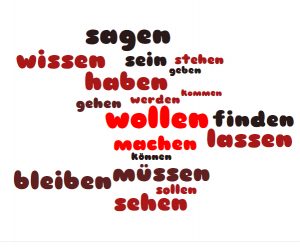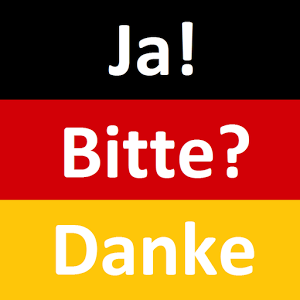This verb list comes from Randall Jones & Erwin Tschirner’s A Frequency Dictionary of German. Core Vocabulary for Learners, which lists the 4034 most commonly used words in German. Here are the 100 most common German verbs along with their English translations. You just have to learn these verbs to start studying German because they are used … [Read more...]
The Amusing German Language
Germans are universally known as a rather serious lot, lacking any sense of humor (disclaimer: NOT TRUE). However, German language bears so many pitfalls, leading to an array of funny situations. The way German speakers are unintentionally funny is priceless and an invaluable way to break the ice in awkward situations. Just imagine all the business … [Read more...]
Tips to Remember German Gender: Der, Die, Das
Memorizing the gender of countless German nouns can be pretty frustrating. For someone who is just starting out with German, this can be really confusing – especially as the genders don’t necessarily seem logical. German nouns can be masculine, feminine or neuter, and this gender affects the form of the articles (and the adjectives) we … [Read more...]
15 false friends in German for English Learners
German and English belong to the group of West Germanic languages and have many words with common language roots. Sometimes you can guess the meaning of the German word because it sounds almost like an English word. This makes learning German language a bit easier for English speakers but it can also create some confusion when it comes to “false … [Read more...]
Simple Reasons Why Learning German Is Worth Your While
Many people arrive in Germany without speaking a word of the language. While some put months of their lives into mastering the language, others choose not to. There are lots of reasons for that: family life, jobs or just the sheer omnipresence of English can hold us back. But there are really good reasons to enlist in a Deutschkurs: 1. You won’t … [Read more...]
You Know You Speak German like a Native, if You Know These 10 Things
The key to learning German is to speak it. People love those who are learning their language. Imagine having the confidence to have a conversation with a native German speaker, practicing your language skills and experiencing German language and culture like you’ve always dreamed of. So you know how to say "Guten Morgen" and "Auf Wiedersehen" - … [Read more...]
Separable Verbs in German
In German, some verbs separate into two parts when used in present tense. While that might sound weird—to take a word and break it apart even for normal use—we do the same thing in English. In English, they’re called “phrasal verbs.” For example, consider what you do with a library book: do you check it? No. You check it out. You can also check … [Read more...]
German Tongue Twisters
Tongue twisters, or Zungenbrecher, are a fantastic way to train your tongue in German pronunciation. It’s not only language learners who use tongue twisters—even speech therapists use them to help train native speakers, so you’re in good company! Just as English-speakers enjoy a good “Peter Piper picked a peck of pickled peppers” challenge every … [Read more...]
Excuses in German – Entschuldigungen
There is a number of ways to say "I'm sorry" in German. Basically, "Entschuldigung!" means "Excuse me!" or "Apologies!" and "Es tut mir leid" means "I am sorry." If you look a bit closer, "die Entschuldigung"(feminine) is a noun meaning: "the apology", but the root of the word is "die Schuld" = "guilt". "ent-" is a prefix of verbs meaning … [Read more...]
How to Use “aber”, “doch”, “denn”, “ja” – German Modal Particles
Modal particles are flavoring words that add a deeper element to language. In German, these could be words that soften the harshness of a comment, add a persuasive or suggestive element to a request or otherwise add subtle meaning to a sentence without changing the grammatical context. Most of the time, particles are only used in spoken … [Read more...]









